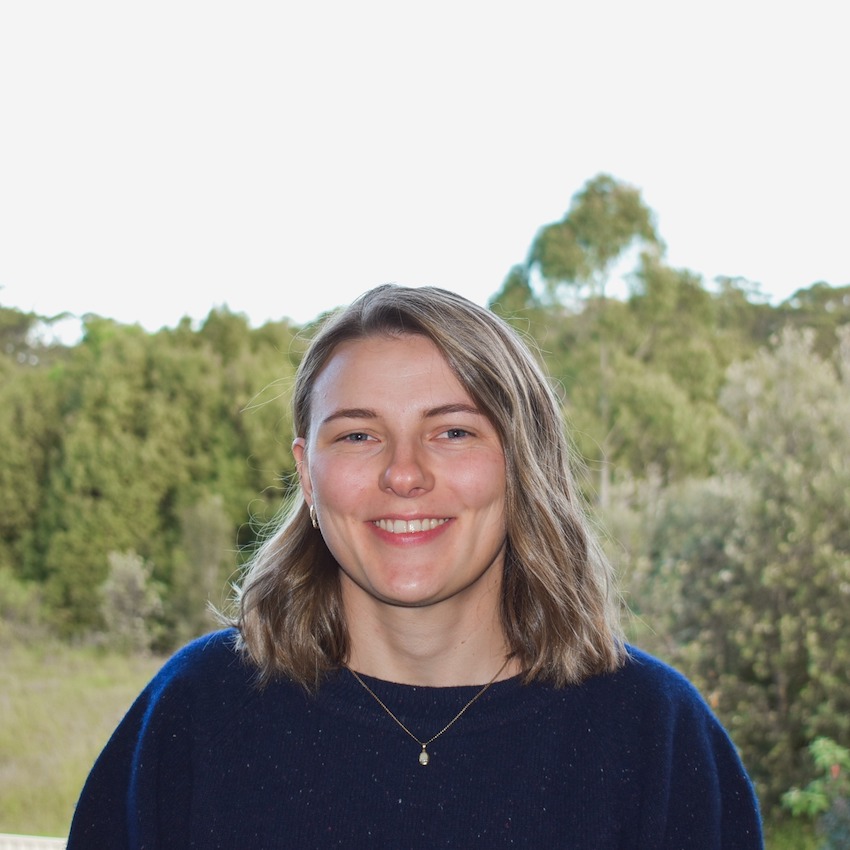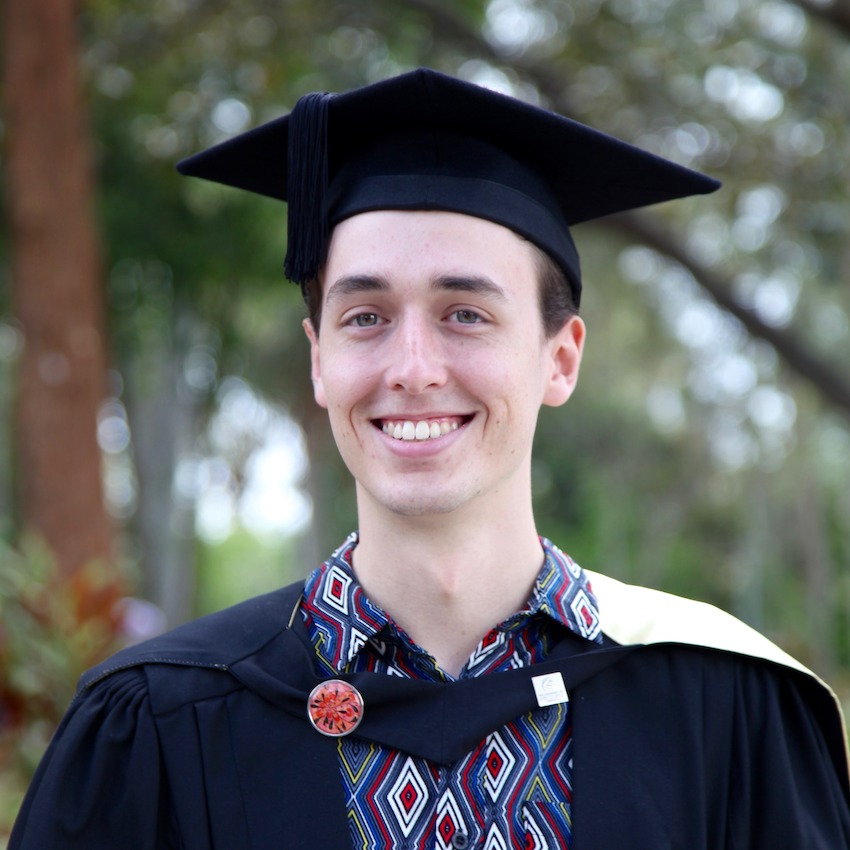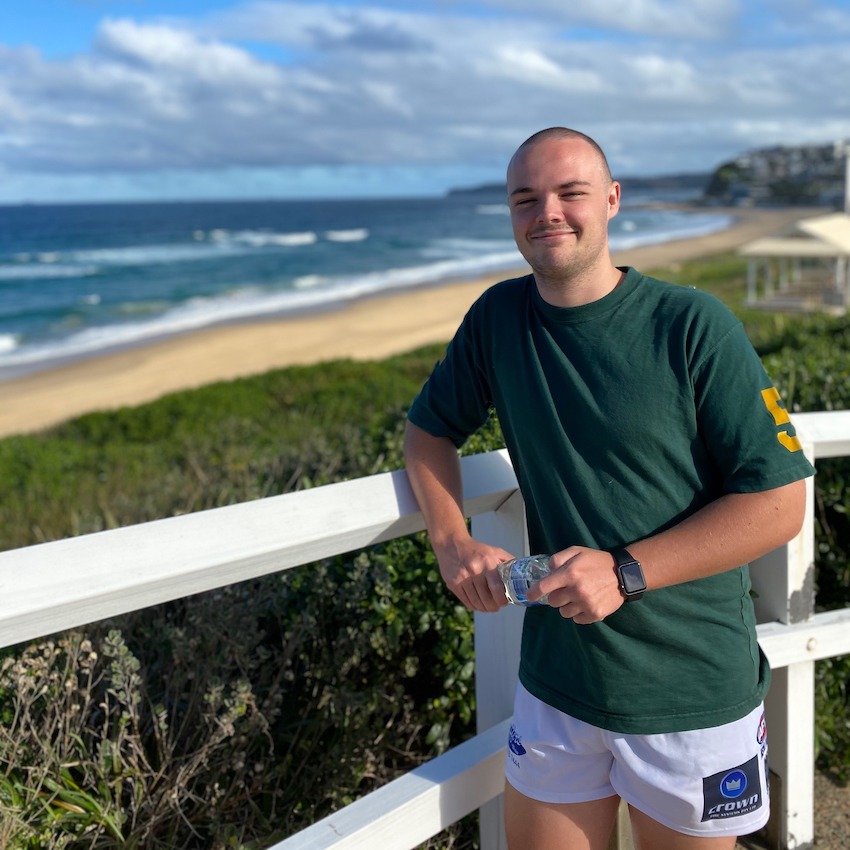
Partnering with industry in sustainability
Jessica Mulhall, Andrew Quinn and Ted Devine worked together as team members to complete the SCIE3001 program as part of their undergraduate studies.
The Transdisciplinary Capstone (SCIE3001A and SCIE3001B) course combination involves firstly planning and developing a team project, and then completing the project and communicate findings.
At the beginning of the course, students were able to choose from a list of projects and form teams.
“Each topic was a ‘wicked’ problem – an extraordinarily complex and dynamic problem with no definitive solution.
“I chose the project that was ‘Progressing the Sustainable Development Goals (SDGs) in the Hunter Region’. The United Nations developed the SDG Report in 2015 in order to end poverty, protect the environment, and ensure that all people live in peace and prosperity,” Jessica said.
The project itself aimed to identify current status and envision the future states of the SDGs in the Hunter region, how regional businesses are ‘driving’ progress to the SDGs, and how progress is being measured.
“We worked closely with the Hunter region SDG task force to promote this information on a corporate scale. It was the first time anyone has ever done it and sets the tone for years to come in the sustainability community,” Ted said.
“We soon realised that the original task would be a monumental undertaking, which would require far too much work for a small undergrad team alone.
“Thus, we changed the brief with our client to create a snapshot about the SDGs in the region, and recommend ways by which future groups could quantify and report on each goal individually,” Andrew said.
Jessica was surprised at how much she learnt about sustainability.
“Sustainability is a word thrown around so casually. But once you dig into it, you realise how complicated it can be.
“It goes beyond environmental sustainability, which is what you might think of first. Instead, sustainability involves complex networks of social, environmental, and economic stakeholders, all interacting and influencing each other in various ways,” Jessica said.
Ted reflects on the teamwork aspect of the project very positively.
“The time with my team was amazing. I got to learn new things about them and myself by working closely together.
“We all had the same role within the team and took on all responsibilities equally. My teamwork and communication skills came in useful throughout the entirety of the course.
“It helped gear me for the real world and showed me that side of teamwork I never knew existed. These skills will no doubt help me with my career for years to come,” he said.
Jessica appreciated the opportunity to work with a wide variety of people across disciplines.
“SCIE3001 allowed me to work with a wide variety of people, just as you would in a professional workplace.
“Our team included seven students, all of whom came from different backgrounds and majors of the Bachelor of Science degree.
“We kept our minds open to all possibilities, given that wicked problems do not have specific solutions, even the most abstract ideas could prove helpful," Jessica said.
Jessica also noted that she was able to make connections to the wider industry.
“I was also able to interview businesses, local governments, and organisations in the Hunter. I saw how they operated, which helped me reflect on the type of career I wanted to pursue post-study,” Jessica said.
The team’s final report provided the SDG Task Force with a comprehensive analysis of six of the SDGs.
They went into detail about the current situation and actions contributing to the goal and targets and indicators for progression.
The report also provided a less detailed analysis of the remaining 11 SDGs and suggested indicators.
Lastly, the team offered a business analysis of how the SDG Task Force could recruit more businesses from the region and increase stakeholder engagement into the future.
Currently, Andrew is undertaking further study and completing his Honours in 2022. He has not yet joined the industry, but does aspire to a job working as an ecologist for a government or industry organisation.
“I like to keep my options open, so I can’t really decide which one yet. it will all come down to the specific job and team that offers to take me on.
“Of course, I am also considering further work as a researcher with the University of Newcastle, however that depends on how my Honours project goes,” Andrew said.
Ted is currently working at Sydney Water in the Resilience and Climate Adaption team, attempting to get to Net Carbon Zero by 2030.
He is also undertaking postgraduate study with a Master of Data Science at the University of Newcastle to further his understanding of data and support his role.
Since completing SCIE3001, Jessica completed two summer research scholarships and is currently completing her Honours through 2022, studying the effects of environmental stress on male fertility and potential therapeutic intervention.
“I’ve had a lot of positive and exciting experiences during my projects in the reproductive lab and want to stay in research.
“After I finish my honours, my short-term goal is to work as a research assistant and gain a broader skillset. As for long term goals, I would like to pursue a PhD in my field of research, Jessica said.



Learn more about a Bachelor of Science at the University of Newcastle

Jessica, Andrew and Ted
Team members Jessica Mulhall, Andrew Quinn and Ted Devine reflect on their work to localise Sustainable Development Goals (SDGs) for the Hunter region.
The University of Newcastle acknowledges the traditional custodians of the lands within our footprint areas: Awabakal, Darkinjung, Biripai, Worimi, Wonnarua, and Eora Nations. We also pay respect to the wisdom of our Elders past and present.